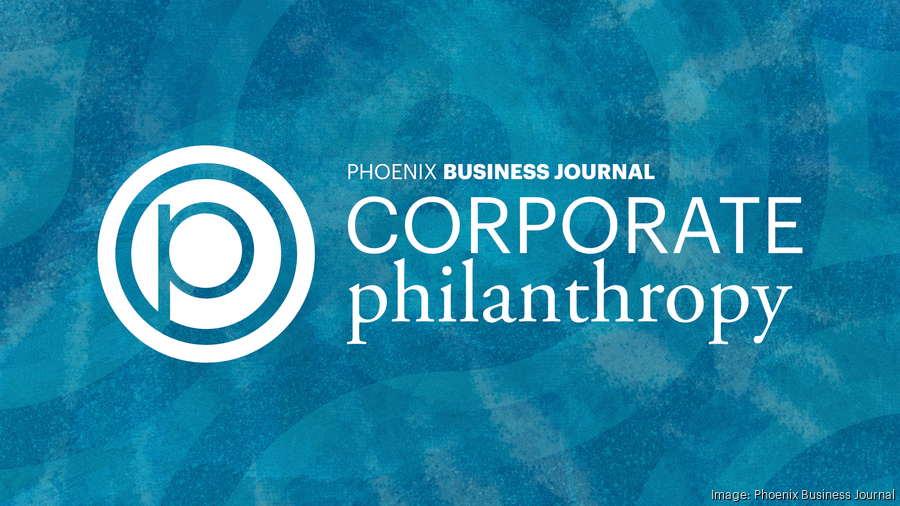Measuring the impact of your corporate philanthropy strategy
Discovering Just How Company Philanthropy Shapes Brand Name Online Reputation and Consumer Commitment
Business philanthropy greatly influences brand online reputation and client loyalty. Companies that take part in genuine philanthropic campaigns often see a favorable shift in how customers view them. This alignment of worths cultivates count on and emotional connections with audiences. Nonetheless, the efficiency of these humanitarian initiatives can differ substantially. Understanding what really reverberates with customers is necessary for brand names looking for to improve their social impact and market placement. What approaches will become important for future success?
The Evolution of Business Philanthropy
As organizations increasingly identify their function in society, the advancement of business philanthropy has actually transformed from plain philanthropic donations to a critical element of brand name identity. Originally, firms participated in philanthropy primarily for tax obligation benefits or to enhance their public image. In time, this approach moved as stakeholders-- consisting of capitalists, customers, and staff members-- demanded a much more genuine dedication to social responsibility.
Organizations started aligning their philanthropic initiatives with their core values and business goals, leading to more impactful and thoughtful payments. This adjustment has actually urged companies to spend in sustainable techniques and area development, promoting a feeling of purpose that reverberates with customers.
Technological improvements have promoted transparency and engagement, allowing businesses to showcase their humanitarian initiatives extra successfully. Business philanthropy has arised as an essential part of service approach, with organizations accepting the chance to favorably affect society while enhancing their total brand story.
The Impact of Philanthropy on Brand Name Assumption
While companies participate in kind initiatives to promote social excellent, these campaigns significantly shape brand understanding amongst customers. Corporate philanthropy can boost a brand's picture by linking it with favorable social impact and community participation. Customers usually view brands that proactively join charitable activities as more trustworthy and responsible. This assumption can affect buying choices, as customers may like brand names that demonstrate a commitment to social problems.

Structure Emotional Links With Offering
Corporate philanthropy works as an effective tool for improving brand identity by connecting corporate worths with community demands. With tactical giving, business can foster area involvement and produce common values that resonate with customers on a psychological degree. This method not only reinforces brand online reputation however likewise constructs long-term connections in between companies and their stakeholders.
Enhancing Brand Name Identity
When firms take part in philanthropic initiatives, they not only contribute to societal excellent however also create deeper psychological links with their target markets. By straightening their brand with philanthropic causes, companies boost their identification and signal values that resonate with customers. This placement creates a narrative that goes past solutions and items, welcoming customers to join a common mission. As customers increasingly prioritize purpose-driven brands, companies that actively take part in giving can separate themselves in a congested market. Such initiatives foster a sense of loyalty among consumers that really feel personally connected to the brand's values. Eventually, business philanthropy comes to be a vital tool for boosting brand identity, cultivating enduring relationships based on common beliefs and emotional interaction.
Fostering Neighborhood Engagement
Countless studies show that companies participating in community-focused kind efforts can markedly reinforce psychological connections with their stakeholders. By spending in local jobs and supporting social reasons, companies grow a feeling of belonging and count on within the community. This involvement cultivates a positive brand name image, as clients value firms that show authentic worry for societal issues. Staff members typically really feel more inspired and honored to be connected with an organization that prioritizes neighborhood well-being. As an outcome, consumers are most likely to develop commitment in the direction of brand names that actively add to significant reasons. Ultimately, fostering area interaction with philanthropy not only boosts brand name reputation however likewise builds long-term emotional connections that benefit both the company and the community it serves.
Producing Shared Values
Just how can companies effectively develop common values that reverberate with their stakeholders? Firms can attain this by aligning their humanitarian initiatives with their core objective and the passions of their areas. By participating in campaigns that attend to neighborhood needs, services foster emotional connections with consumers, enhancing brand commitment. For example, partnering with non-profits that mirror shared worths strengthens the brand's image and demonstrates commitment to social duty. In addition, clear interaction regarding these initiatives permits stakeholders to see the tangible influence of their payments. Inevitably, by integrating shared values right into their business philanthropy, business not just improve their track records however likewise cultivate long lasting connections with consumers, resulting in enhanced loyalty and trust. This positioning is vital in modern customer decision-making.
Instance Researches: Effective Philanthropic Campaigns
Examining successful humanitarian campaigns exposes various methods that improve brand reputation. Impactful area initiatives, innovative collaboration versions, and long-term engagement methods have confirmed efficient in fostering positive connections with consumers. These case research studies highlight the relevance of thoughtful company offering in attaining both social and organization goals.
Impactful Area Initiatives
Lots of business have efficiently leveraged philanthropic campaigns to boost their brand name reputation while making a significant effect in their neighborhoods. As an example, a technology firm launched an electronic proficiency program in underserved areas, offering training and sources that encouraged regional residents. This initiative not only added to neighborhood advancement yet likewise positioned the firm as a socially liable leader. In a similar way, a major food business carried out a cravings relief campaign, partnering with regional nonprofits to disperse meals to households in demand. This initiative reinforced area connections and cultivated client commitment. Through these impactful campaigns, companies have actually shown their commitment to social responsibility, properly straightening their brand name values with the demands of the neighborhoods they offer, eventually boosting their total credibility.
Innovative Partnership Designs
The success of impactful neighborhood efforts commonly hinges on cutting-edge collaboration models that unite diverse stakeholders to attend to facility social obstacles. Study illustrate how firms, non-profits, and federal government entities can team up successfully. An international firm partnered with a neighborhood non-profit to launch an education and learning program, pooling sources and proficiency to improve community proficiency prices. One more example included a technology firm and a medical care organization signing up with forces to create a telemedicine service for underserved populaces. These partnerships not just intensified the reach of kind efforts but also reinforced the brands' credibilities by aligning their missions with area requirements. Inevitably, cutting-edge partnership versions serve as a stimulant for significant change and foster stronger links between brand names and their consumers.
Long-term Interaction Strategies

Determining the ROI of Business Social Responsibility
As business significantly invest in corporate social responsibility (CSR) campaigns, understanding the roi (ROI) associated with these efforts becomes important. Measuring ROI in CSR is multifaceted, frequently including both qualitative and measurable metrics. Financial returns can be examined with enhanced sales, improved brand name commitment, and boosted worker spirits, which can bring about i loved this greater productivity. Additionally, companies might analyze cost financial savings linked to lasting techniques, such as lowered waste or energy intake.
Qualitatively, the influence of CSR on brand name online reputation can be evaluated through customer understanding research studies and social media sentiment analysis. Surveys can provide insights into just how CSR tasks influence customer loyalty and count on. Benchmarking versus market criteria can help companies determine their CSR performance - corporate philanthropy. Eventually, an extensive strategy to determining ROI enables firms to make enlightened choices about future CSR investments, aligning approaches with both economic performance and social influence
Customer Assumptions and Company Obligation
Significantly, consumers anticipate firms to run with a strong sense of business obligation, viewing honest practices as a prerequisite for brand name commitment. This shift in expectation shows a growing recognition of social and environmental concerns, leading consumers to prefer brands that align with their worths. Customers are more inclined to sustain firms that participate in transparent methods, demonstrate sustainability, and add favorably to their neighborhoods.
Additionally, social media sites intensifies these expectations, enabling customers to share their opinions and experiences quickly. Brand names that fail to meet these moral requirements risk backlash, while those that welcome business obligation frequently appreciate enhanced credibility and client loyalty. As consumers demand accountability, companies should integrate corporate social obligation right into their core strategies, prioritizing honest behavior not simply as an advertising technique, but as an essential element of their procedures. This placement can inevitably cause stronger brand affinity and sustained success in affordable markets.
Future Patterns in Corporate Philanthropy and Brand Name Loyalty
The landscape of business philanthropy is developing, influenced by the heightened customer expectations bordering corporate responsibility. Business are significantly incorporating social influence right into their core organization methods, not just as an ancillary activity. Future trends suggest a shift toward openness, with brand names sharing detailed info concerning their philanthropic campaigns and their straight effects on neighborhoods.
Furthermore, modern technology is playing a vital duty, enabling real-time engagement between brand names and consumers. Social media platforms promote direct interaction, enabling consumers to articulate their expectations and hold imp source brand names liable. Furthermore, more youthful generations, particularly Millennials and Gen Z, prioritize sustainability and ethical methods, driving businesses to take on even more conscientious techniques.
As business philanthropy becomes synonymous with brand identification, companies that authentically align their goals with societal demands are likely to promote stronger customer commitment. This convergence of values will eventually shape the future of business reputation and consumer connections in an increasingly diligent industry.
Often Asked Questions
How Do Consumers Learn about a Firm's Philanthropic Initiatives?
Customers discover a business's philanthropic efforts through various networks, including social media, news release, community occasions, and word-of-mouth. These methods help with understanding, enabling individuals to engage with brand names that straighten with their worths and interests.
What Duty Does Staff Member Participation Play in Business Philanthropy?
Worker involvement in corporate philanthropy enhances involvement, promotes a sense of ownership, and enhances group cohesion - corporate philanthropy. This participation usually enhances the influence of philanthropic initiatives, leading to better understanding and assistance for the company's kind initiatives
Can Corporate Philanthropy Backfire on a Brand's Online reputation?
If viewed as opportunistic or insincere, company philanthropy can undoubtedly backfire on a brand name's online reputation. Negative public perception may develop, leading to lessened trust and loyalty amongst customers that focus on authenticity in corporate actions.
Are Smaller Sized Business as Reliable in Philanthropy as Larger Corporations?
Smaller firms can be equally effective in philanthropy as larger companies, often demonstrating dexterity and credibility. Their local efforts may resonate more deeply with neighborhoods, cultivating real links regardless of minimal sources contrasted to their larger equivalents.
How Can Firms Select the Right Creates to Support?
Firms can choose the ideal bring on by aligning their worths with area demands, assessing stakeholder interests, and assessing prospective impact. This calculated strategy fosters authenticity, enhances engagement, and strengthens links with consumers and the broader community.
While companies involve in humanitarian initiatives to promote social good, these initiatives significantly shape brand name assumption amongst consumers. As customers significantly focus on purpose-driven brands, business that proactively involve in giving can differentiate themselves in a crowded market. Several firms have successfully leveraged kind projects to boost their brand name track record while making a purposeful impact in their neighborhoods. Progressively, consumers anticipate companies to run with a solid sense of business duty, checking out honest techniques as a prerequisite for brand name loyalty. As business philanthropy becomes identified with brand name identity, firms that authentically align their objectives with societal requirements are most likely to cultivate more powerful customer loyalty.